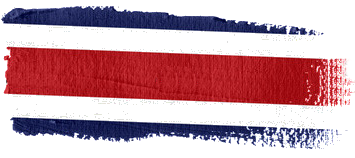Team:Costa Rica-TEC-UNA/Project
From 2012.igem.org
Maruchan09 (Talk | contribs) (→Overall project) |
|||
| Line 1: | Line 1: | ||
| - | {| style="color:# | + | {| style="color:#000000;background-color:#D4EBF9;" cellpadding="2" cellspacing="2" border="1" bordercolor="#fff" width="90%" align="center" |
!align="center"|[[Team:Costa_Rica-TEC-UNA|Home]] | !align="center"|[[Team:Costa_Rica-TEC-UNA|Home]] | ||
!align="center"|[[Team:Costa_Rica-TEC-UNA/Team|Team]] | !align="center"|[[Team:Costa_Rica-TEC-UNA/Team|Team]] | ||
| - | |||
!align="center"|[[Team:Costa_Rica-TEC-UNA/Project|Project]] | !align="center"|[[Team:Costa_Rica-TEC-UNA/Project|Project]] | ||
!align="center"|[[Team:Costa_Rica-TEC-UNA/Parts|Parts Submitted to the Registry]] | !align="center"|[[Team:Costa_Rica-TEC-UNA/Parts|Parts Submitted to the Registry]] | ||
| Line 9: | Line 8: | ||
!align="center"|[[Team:Costa_Rica-TEC-UNA/Safety|Safety]] | !align="center"|[[Team:Costa_Rica-TEC-UNA/Safety|Safety]] | ||
!align="center"|[[Team:Costa_Rica-TEC-UNA/Attributions|Attributions]] | !align="center"|[[Team:Costa_Rica-TEC-UNA/Attributions|Attributions]] | ||
| + | !align="center"|[https://igem.org/Team.cgi?year=2012&team_name=Costa_Rica-TEC-UNA Official Team Profile] | ||
|} | |} | ||
| + | [[Image:Costa_Rica-TEC-UNA_team.png|right|]] | ||
Revision as of 00:21, 8 June 2012
| Home | Team | Project | Parts Submitted to the Registry | Modeling | Notebook | Safety | Attributions | Official Team Profile |
|---|
Contents |
Overall project
Cibus 3.0 is a project consisting on the production of biodiesel from dairy industry wastes. Annually, about 675 thousand tons of whey are thrown into rivers. This because at the present time there isn’t a program for reusing this waste, and producers find it difficult to treat them properly because of its chemical composition.
Cibus 3.0 plans to face this problem by using a system of genetically bred bacteria using synthetic biology to transform this waste into biodiesel in a more efficient and scalable way. The improvements on this bacteria’s metabolism allow them to have a better intake of the substrate and its transformation into the desired product (biodiesel). Furthermore this process allows a better harvest of the produced biofuel compared to current systems, and at the end the bacteria bursts, releasing biodiesel in the medium. In the future, Cibus 3.0 expects to transform more bacteria in order to use other industrial and agricultural wastes as raw material for biodiesel production.
 "
"

